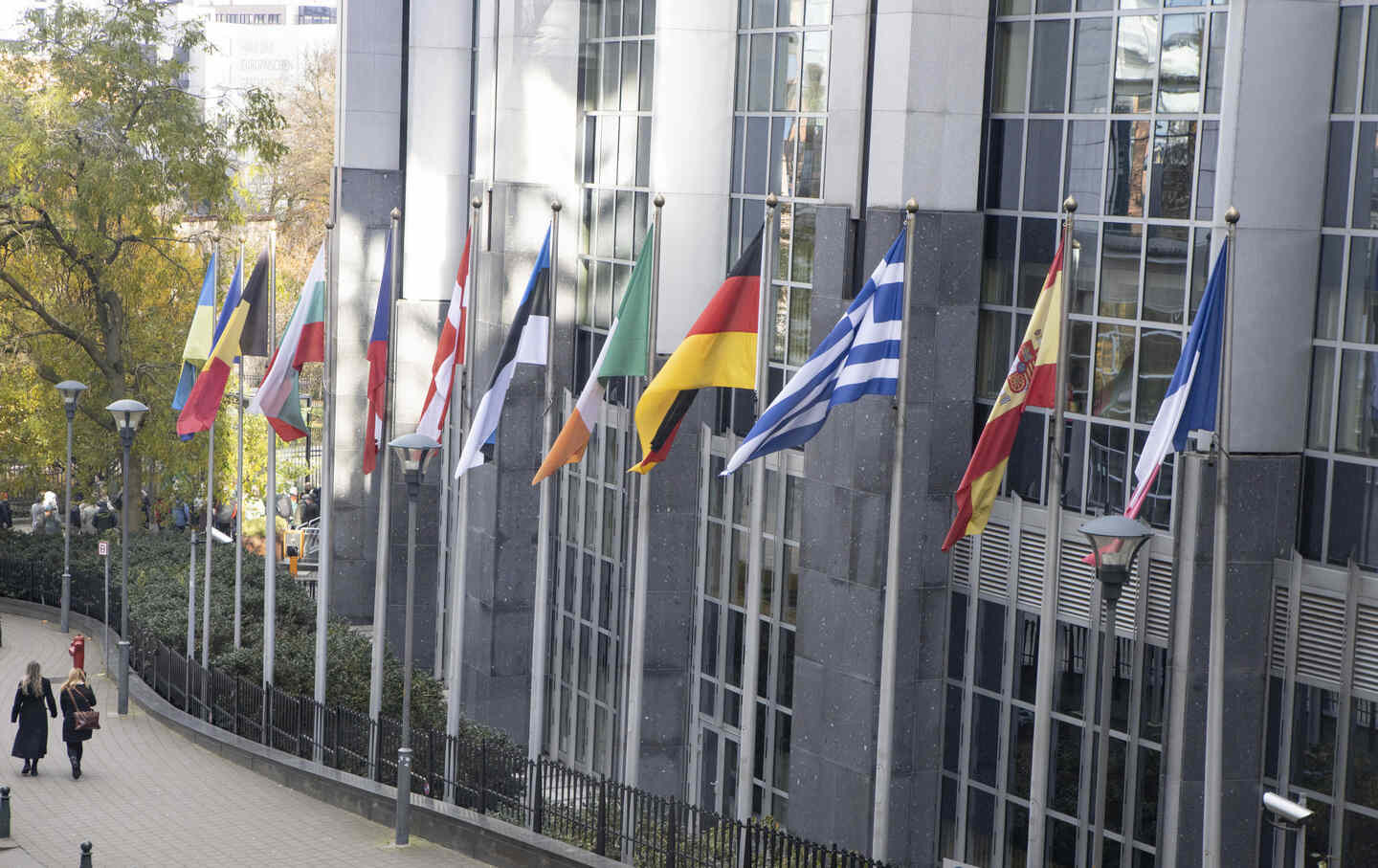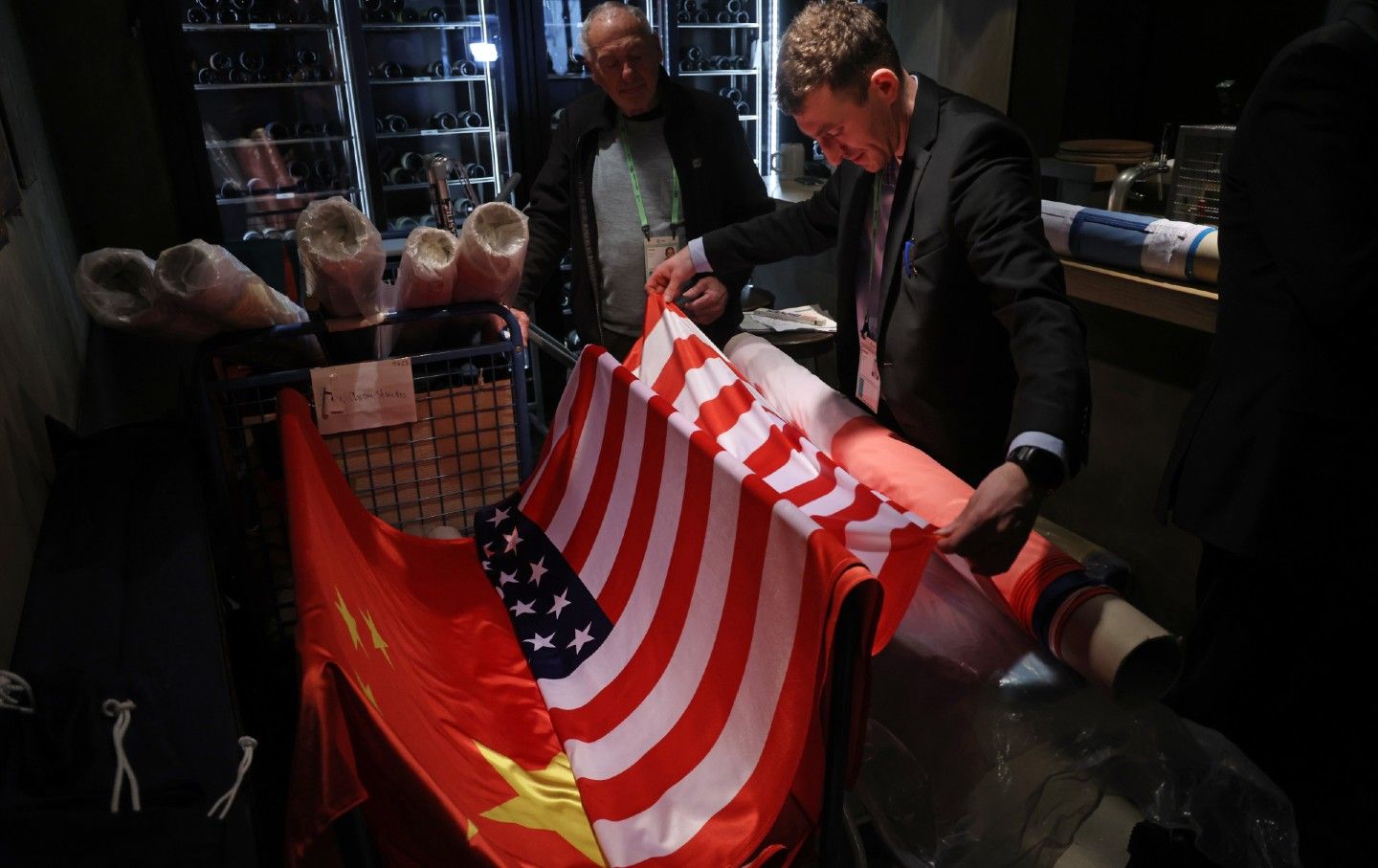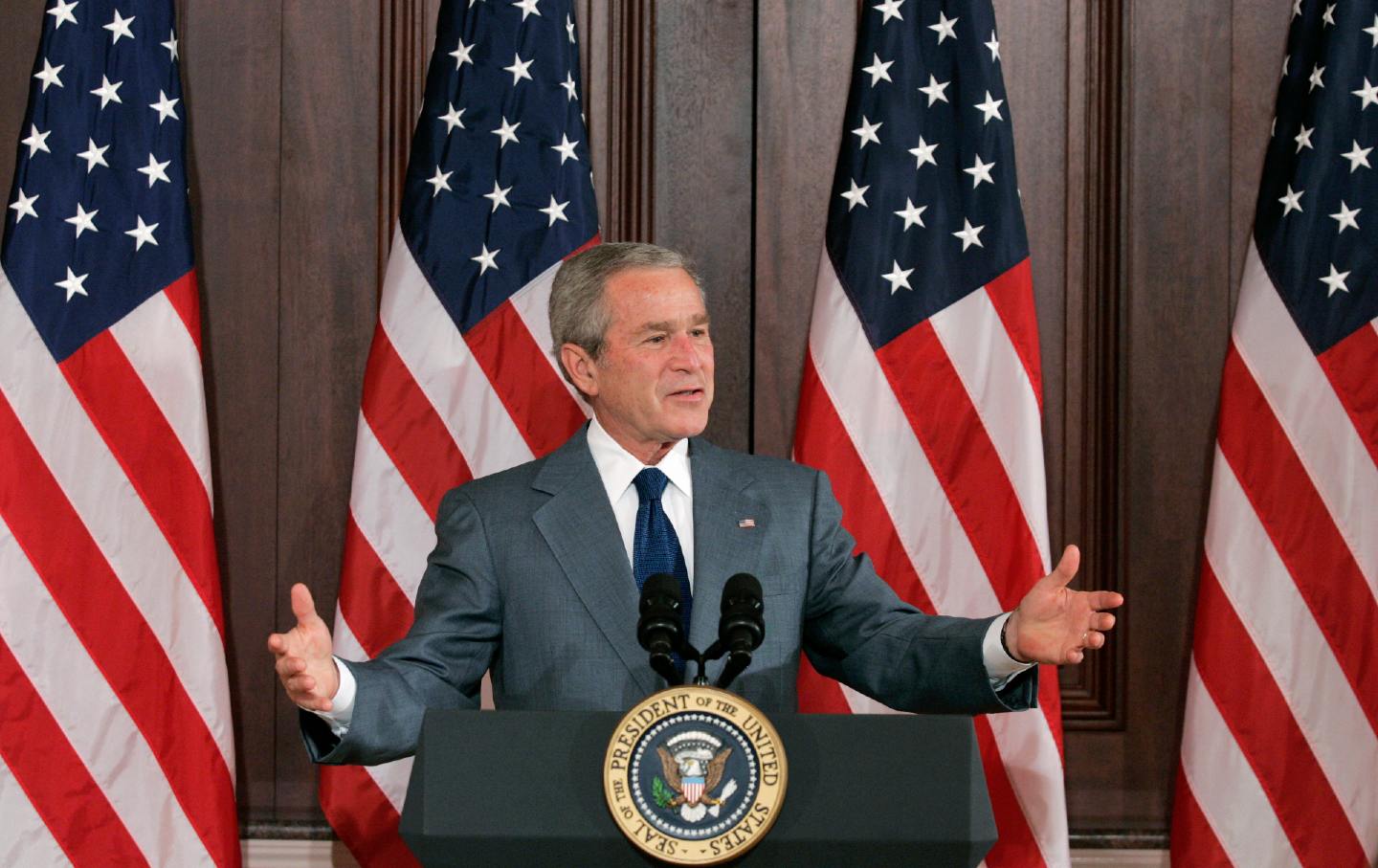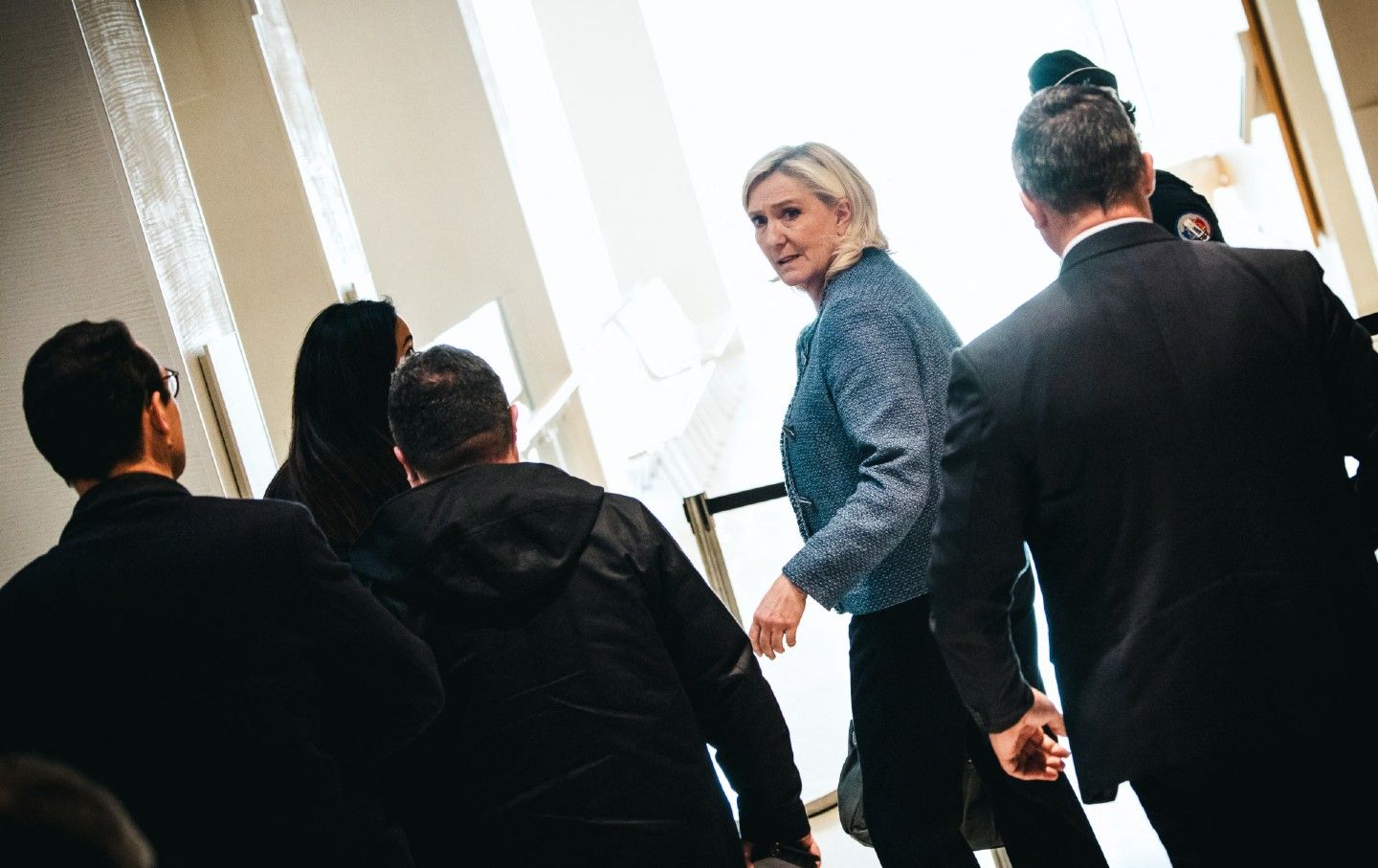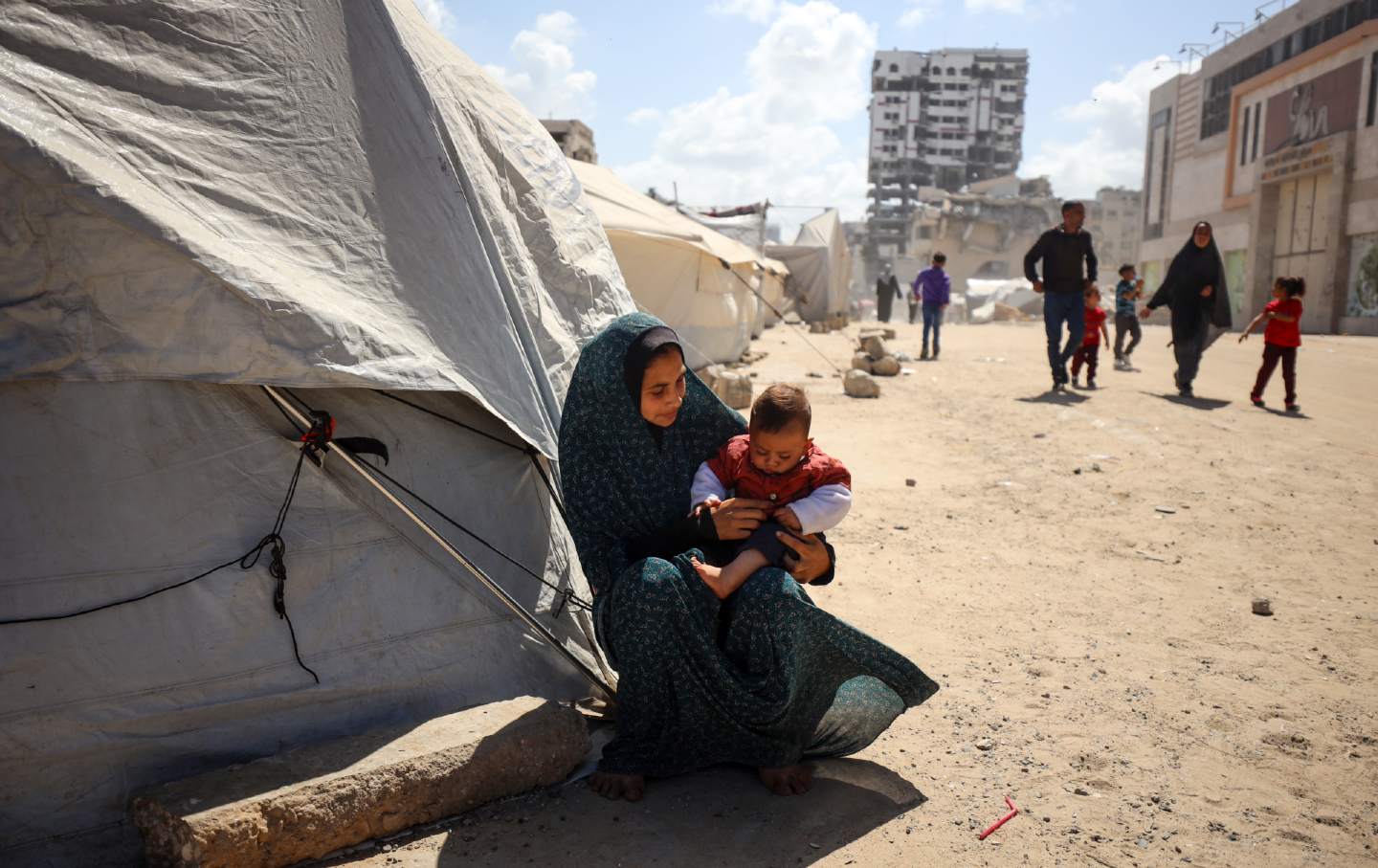France Avoids Disaster. Can the Olympics Do the Same?
The socialist mayor of Paris has promised that the Olympics can make Paris greener, cleaner, and safer. With the left triumphant, will this actually happen?
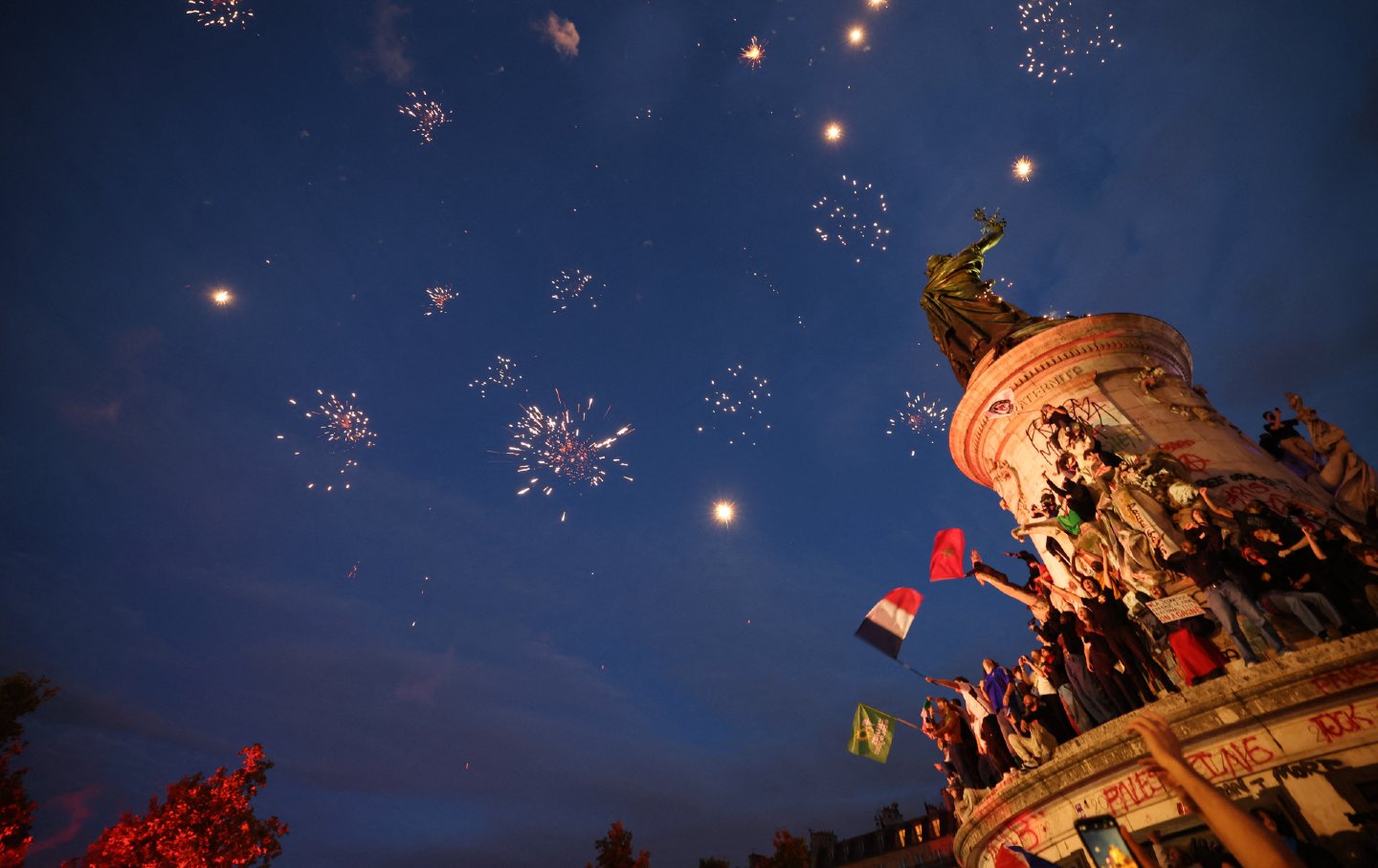
Participants wave French national tricolors as fireworks light up the sky during an election night rally following the first results of the second round of France’s legislative election at Place de la République in Paris on July 7, 2024.
(Emmanuel Dunand / AFP via Getty Images)
The stage was set for the far right to hijack the Olympic Games. On the eve of France’s legislative elections, it seemed like the country was about to lurch closer to fascism than at any time since the end of World War II. But thanks to strategic solidarity among the left parties and a historically high voter turnout, the Rassemblement National (National Rally, or RN) will not control the government. Instead, preliminary results show the Nouveau Front populaire (New Popular Front, or NFP) securing the most seats in Parliament, followed by Macron’s centrist Ensemble coalition, while the RN trailed at third.
French President Emmanuel Macron’s impetuous decision to stage snap elections could have put the RN in power less than three weeks before Paris hosts the Summer Olympics. Macron nearly created a chance for the RN to use the Olympics to normalize its abhorrent political convictions on the world’s biggest sporting stage. We all would have watched on network television as RN leaders were greeted by foreign dignitaries with the kind of pomp, circumstance, and ceremony that historically has been catnip to the brown-shirted political class.
The Olympics has a long and inglorious history of providing political cover to right-wing despots. A prime example is the 1936 Summer Games in Berlin, where Adolf Hitler temporarily tamped down his virulent antisemitism while the Olympics were in town. A 1936 article in The New York Times—titled “Olympics Leave Glow of Pride in the Reich”—provided cover for the Nazis, asserting that “Hitler is one of the greatest, if not the greatest, political leaders in the world today.”
According to the Olympic Charter that was in force at the time, the Olympics endeavored to use “the moral virtue attached to sport” in order to foster “the spirit of chivalry,” champion the “love of ‘fair play,’” and “promote better understanding” between people around the world. And yet, the swastika flew everywhere, often directly next to the five-ring flag of the Olympics. The intertwined iconography was unmistakable: Supporting the Olympics meant supporting Nazism and vice versa. The 1936 Berlin Olympics helped instigate what eventually became a trend in sportswashing—open revanchists using sports to appear important or legitimate on the global stage, while stoking nationalism and deflecting attention from chronic social problems and human rights woes at home.
Not only did Macron miscalculate in his decision to call for a snap vote, but he often spoke as if the choice of either the far right or the alliance of the left parties united under the New Popular Front banner would amount to the same thing. This was refracted through the mainstream media, too, as when The New York Times reported, “In the run-up to the election, Mr. Macron tried invoking every threatening specter, including a potential ‘civil war,’ to warn people off voting for what he called ‘the extremes’: the National Rally with its view of immigrants as second-class and the far-left France Unbowed with its antisemitic outbursts.” This false equivalence was not only disingenuous but also dangerous.
Let’s be clear: The RN is a party that scapegoats the marginalized for the woes of French society. Right-wing golden boy Jordan Bardella stated the RN’s agenda with chilling clarity: “We will act by expelling delinquents, criminals, and foreign Islamists who pose a threat to national security.” His party has vowed to bar dual nationals from “the most strategic posts of state.” The French investigative outlet Mediapart issued a report that found more than 40 RN candidates had spewed racist hate speech. And antisemitism is alive and well in RN circles. One candidate asserted during the first round of voting that Jews were financing a competitor party. Ironically, the RN, alongside centrists, has slandered the French left as antisemitic for supporting basic Palestinian rights, which, French Jewish activist Simon Assoun pointed out, is a way “to legitimize their own racist and Islamophobic battles.”
Meanwhile, the French left issued a manifesto expressing its intention to “increase the minimum wage; freeze the price of essential goods and energy; abolish the pension age rise to 64, reducing it back down to 60; and tax rises on income, property, wealth and inheritance.” To flatten the National Rally and the New Popular Front into “the extremes,” as Macron routinely insisted on doing, was to engage in a flimsy political charade.
In 1931, as Hitler ascended to the chancellorship, The New York Times assured readers, “The composition of the Cabinet leaves Herr Hitler no scope for gratification of any dictatorial ambition.” Oh, how wrong they were. The RN’s “dictatorial ambition” may have been temporarily squelched, but the threat remains.
What comes next for France? The Guardian noted that “it seems likely that France is heading for a lengthy spell of political uncertainty and instability, potentially characterized by at best a minimum of legislative progress, and at worst by parliamentary deadlock.”
Enter the Olympic Games. While it is too early to say what the effect of hosting the Games will have on this precarious political scene, history tells us it will leave a mark. Keep an eye on what happens to the triumphant left coalition around the Games. The mayor of Paris, socialist Anne Hidalgo, has trumpeted the Olympics as a transformative project to make Paris greener, cleaner, and safer. Yet, for those fighting for social justice, the Olympics pose a challenge: The Games are a corporate monolith that leaves debt and the latest in AI security technology in its wake. But the conditions for the left are far better than we could have imagined before Sunday.
Natsuko Sasaki, an anti-Olympics activist with the organization Saccage 2024 told us, “The [new ruling left] coalition includes the Socialist Party, which was the political force behind the Paris 2024. It was neither Macron nor Le Pen, but the Socialist Party who decided to host the Games…with the support from Green and Communist allies at local level. With their ‘victory,’ it becomes possible to fight against the Olympics, without being trapped by the dilemma between anti-fascism and anti-Olympics.”
Instead of facing a far-right horde, the left is now challenging its own leaders to live up to promises of a more economically just Paris and an Olympics that does not displace communities or ruin lives. The task is great, but no less urgent.

